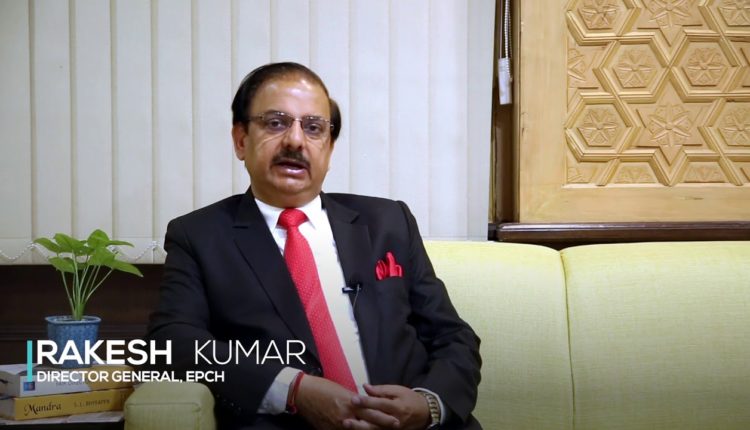
On Thursday, Digital Technology & Marketing Consultant Ram Jalan hosted Rakesh Kumar, Chairman, India Expo Mart and DG, EPCH on Ten News Live to talk about the challenges for Exhibition and Handicrafts Sector and underlying opportunities, at a time when the sector is going through unprecedented changes amid the Corona scare and lockdown restrictions.
While briefing about the exhibition sector globally, Kumar said that the exhibition and trade fair sector is the multiplier of the economic growth. In most of the developed countries in west, every city has one exhibition centre and every exhibition centre hosts atleast 1 or 2 unique trade shows which is not held anywhere else.
Kumar further said that these exhibitions provide employment in areas like hospitality, tourism, logistics, exhibition supplies, consultancy and more.
In India, the exhibition industry started developing just about 2 decade ago and for a long time there was only one exhibition centre in Pragati Maidan.
When asked about how the Covid-19 has affected the industry, Kumar said that the new business development has not been taking place in the sector as it has been completely shut since the month of February due to lockdown restrictions.
“The sector must reopen at the earliest as it affects the direct employment in the sector and also the potential new business worth 3 lakh crore that is generated each year.”
When asked about the response to multiple virtual exhibitions organized by EPCH this year, Kumar said that there have been some mixed results from the virtual exhibitions.
The business generated in a virtual fair is only 10-30% of the physical fair, however the cost of exhibiting in a virtual fair also falls drastically to 2% in comparison to a physical fair because the exhibitor is not needed to pay for exhibition booth, logistics, accomodation cost in a virtual fair.
While the virtual exhibitions are the need of the hour, it comes with a downside. Kumar said that the personal touch is missing in the virtual fairs which is very much required especially in segments like home, fashion and furniture.
Going forward, the exhibitions will be organized in a blended form i.e integrating technology into physical fairs, hinted Kumar saying that technology increases access to buyers across the globe.
When asked about the response of buyers in these testing times, Kumar said that the overseas buyers have also given a mix reaction according to their situation.
“A buyer in Netherland said that if international flights and the exhibitions are allowed again, then he is prepared to come even next week as his business is suffering,” shared Kumar.
“Another buyer from a very large group blatantly refused to travel to another country and said that he won’t be able to visit atleast till the end of this year. The reason is that company has to pay in case if anything happens to him.”
However, the Buying Agents Association of India which represents the overseas buyers in India is willing to come and buy on the behalf of the buyers as soon as the physical exhibitions starts.
Lastly while sharing his vision for the India Expo Mart, Kumar said that we are likely to go to some of the tier 2 cities in India where we might set up similar other exhibition and mart centers.

